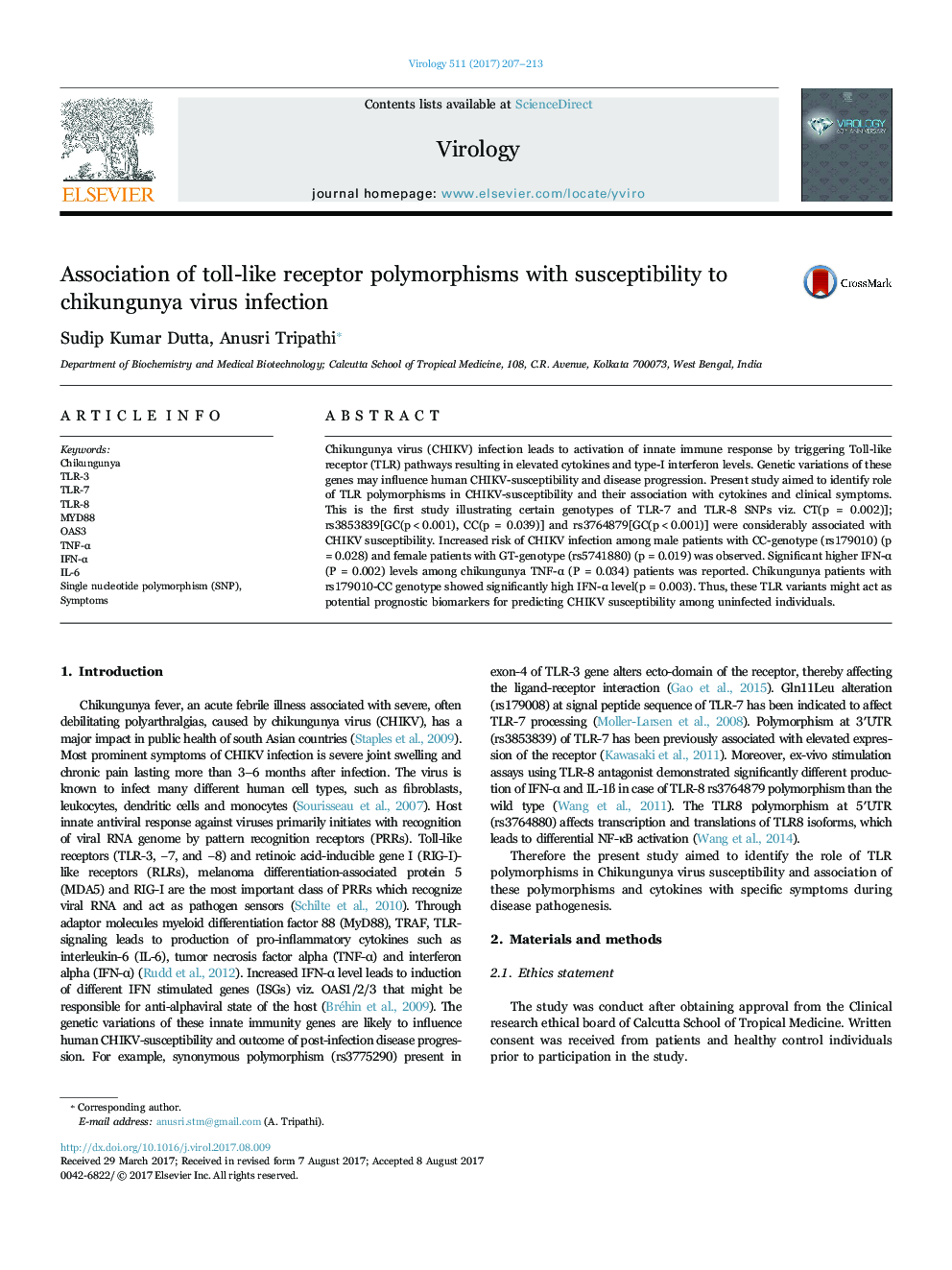| Article ID | Journal | Published Year | Pages | File Type |
|---|---|---|---|---|
| 5674903 | Virology | 2017 | 7 Pages |
Abstract
Chikungunya virus (CHIKV) infection leads to activation of innate immune response by triggering Toll-like receptor (TLR) pathways resulting in elevated cytokines and type-I interferon levels. Genetic variations of these genes may influence human CHIKV-susceptibility and disease progression. Present study aimed to identify role of TLR polymorphisms in CHIKV-susceptibility and their association with cytokines and clinical symptoms. This is the first study illustrating certain genotypes of TLR-7 and TLR-8 SNPs viz. CT(p = 0.002)]; rs3853839[GC(p < 0.001), CC(p = 0.039)] and rs3764879[GC(p < 0.001)] were considerably associated with CHIKV susceptibility. Increased risk of CHIKV infection among male patients with CC-genotype (rs179010) (p = 0.028) and female patients with GT-genotype (rs5741880) (p = 0.019) was observed. Significant higher IFN-α (P = 0.002) levels among chikungunya TNF-α (P = 0.034) patients was reported. Chikungunya patients with rs179010-CC genotype showed significantly high IFN-α level(p = 0.003). Thus, these TLR variants might act as potential prognostic biomarkers for predicting CHIKV susceptibility among uninfected individuals.
Related Topics
Life Sciences
Immunology and Microbiology
Virology
Authors
Sudip Kumar Dutta, Anusri Tripathi,
